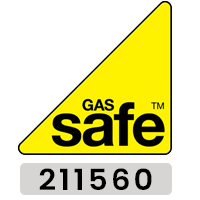There are no categories
What Every Homeowner Should Know About Boiler Safety
Your boiler plays a key role in keeping your home warm and cosy during the colder months. It supplies the heat and hot water needed to ward off the chill, prevent condensation, and protect your home from potential freezing-related damages.
Thanks to technological innovations, modern boilers are now safer than they've ever been. However, like any household appliance, there's always a risk of hazards if not properly cared for. These issues can range from less serious, yet costly problems like overheating, to potentially deadly ones, such as carbon monoxide leaks.
At M J Burt, our team of Gas Safe registered engineers have years of experience keeping boilers in top condition. Keep reading for a comprehensive guide on the steps you should take to make sure your boiler stays safe and working as it should!
1. Arrange for regular maintenance
Regular boiler maintenance isn't just about keeping your home comfortable - it's also about keeping it safe from potential dangers. An annual service by a Gas Safe registered engineer can identify potential problems before they escalate, preventing breakdowns and costly repairs.
As a bonus, regular boiler maintenance also optimises your heating system's performance. This means it will deliver maximum heat output while minimising energy consumption. A well-maintained boiler operates smoothly, reducing fuel costs and saving you money on your energy bills.
2. Keep the space around your boiler well ventilated
It's common for people to use their boiler cupboard for extra storage, but this can end up backfiring. A pileup of clutter can seriously impact the efficiency of your boiler - it can block air vents and circulation pathways, leading to overheating and potential damage to the boiler.
Even worse, vegetation growing around the external vents and flues of your boiler might prevent combustion gases from escaping, posing a significant risk of carbon monoxide poisoning.
A messy environment also makes it difficult to carry out routine maintenance and inspections on the boiler, allowing problems to go unnoticed and potentially escalate into bigger issues.
To avoid these risks, regularly clear the area around your boiler of clutter, debris, and anything flammable. Make sure to keep vegetation at a distance from the vents and flues to prevent them from blocking exhaust gases. A good rule of thumb is to maintain a clear perimetre of at least three feet around your boiler and vents, as this will allow for proper airflow and make it easier to access the boiler for maintenance purposes.
3. Listen out for odd noises
If your boiler starts making strange noises like clanking, hissing, or whistling, don't brush them off. These sounds could be symptoms of underlying problems that need attention - common culprits include air trapped in the system, kettling, and low water pressure. Quickly identifying and addressing these issues can help prevent more extensive damage and costly repairs down the road.
4. Monitor the pressure gauge
Every boiler comes with a pressure gauge to show the water pressure in the system. Get to know the usual pressure range for your boiler and make it a habit to check it regularly. Too low pressure can result in insufficient heating, while excessive pressure can pose safety risks.
If you've noticed the water pressure in your boiler dropping, check out our guide to boiler pressure for more information on what you should do.
5. Install a carbon monoxide detector
Carbon monoxide (CO) is a colourless, odourless, and tasteless gas that can be deadly if inhaled in high concentrations. It's commonly viewed as the biggest risk a boiler can pose - according to The Office for National Statistics, there are over 60 deaths on average every year due to carbon monoxide poisoning in England and Wales.
To keep yourself and your family safe, it's important to install CO detectors throughout your home. Place them on each level, close to bedrooms, and near appliances like boilers. Make it a habit to check your CO detectors regularly by pressing and holding the test button - the alarm should sound for 3 to 5 seconds before turning off automatically. Using a CO detector tester spray is also a good idea for an extra layer of safety.
Keep your family safe with trusted experts from M J Burt
Gas boilers are complex appliances, and improper handling can lead to serious consequences. Never attempt to DIY gas work on your boiler; always call qualified engineers to take care of it for you.
At M J Burt, we offer both emergency repairs and annual servicing to keep your boiler working its best. Our fully certified technicians have years of hands-on experience with all boiler makes and models, so you can feel confident leaving any issue in their capable hands.
All repairs and installations come backed by an industry-leading warranty on parts and labour for extra peace of mind.
Protect your family and home with professional boiler services from M J Burt. Book online or ring us on 01202 721955 today!


